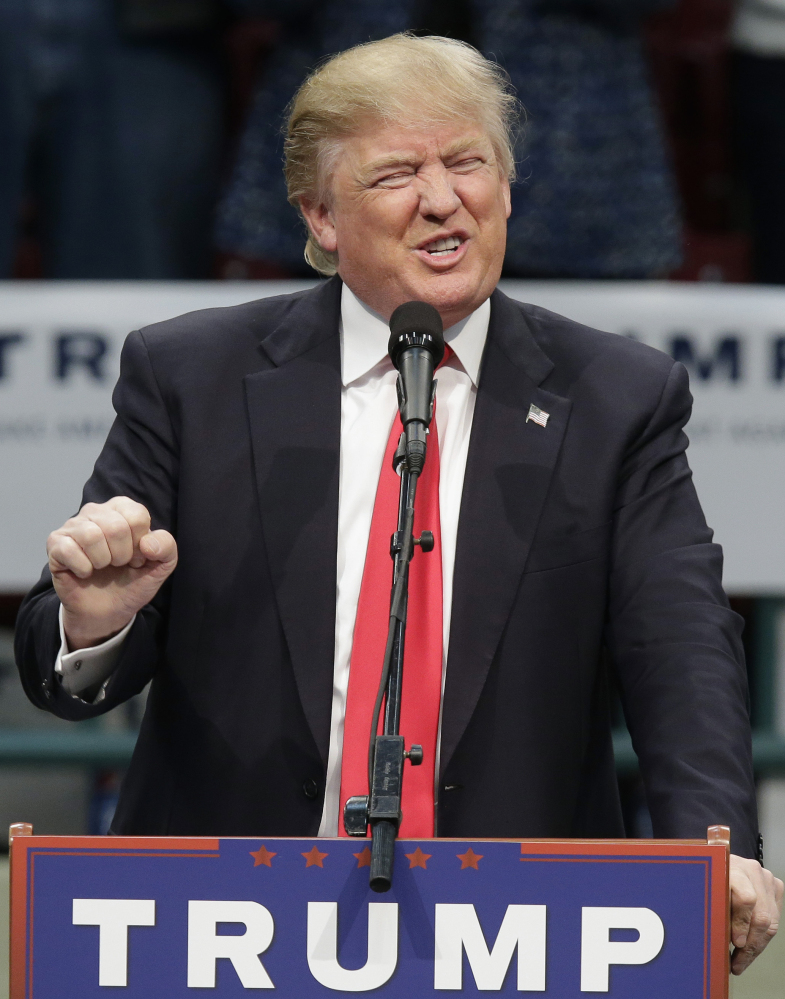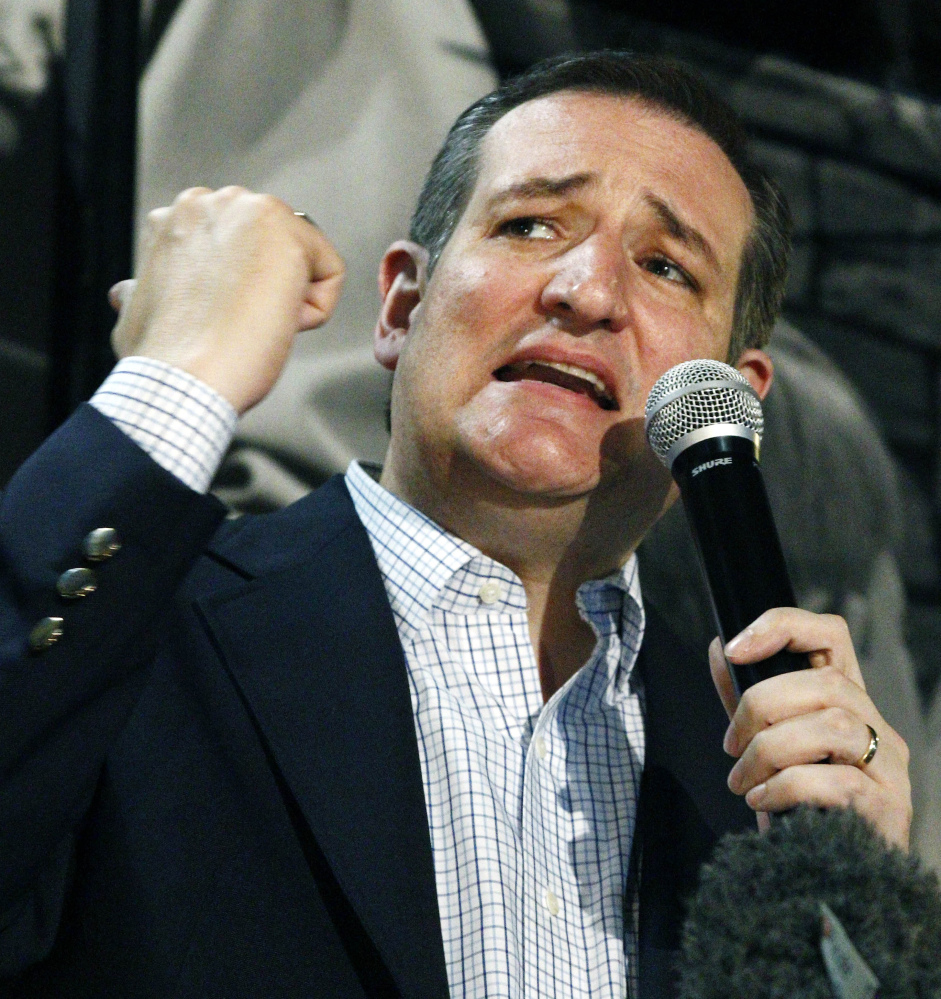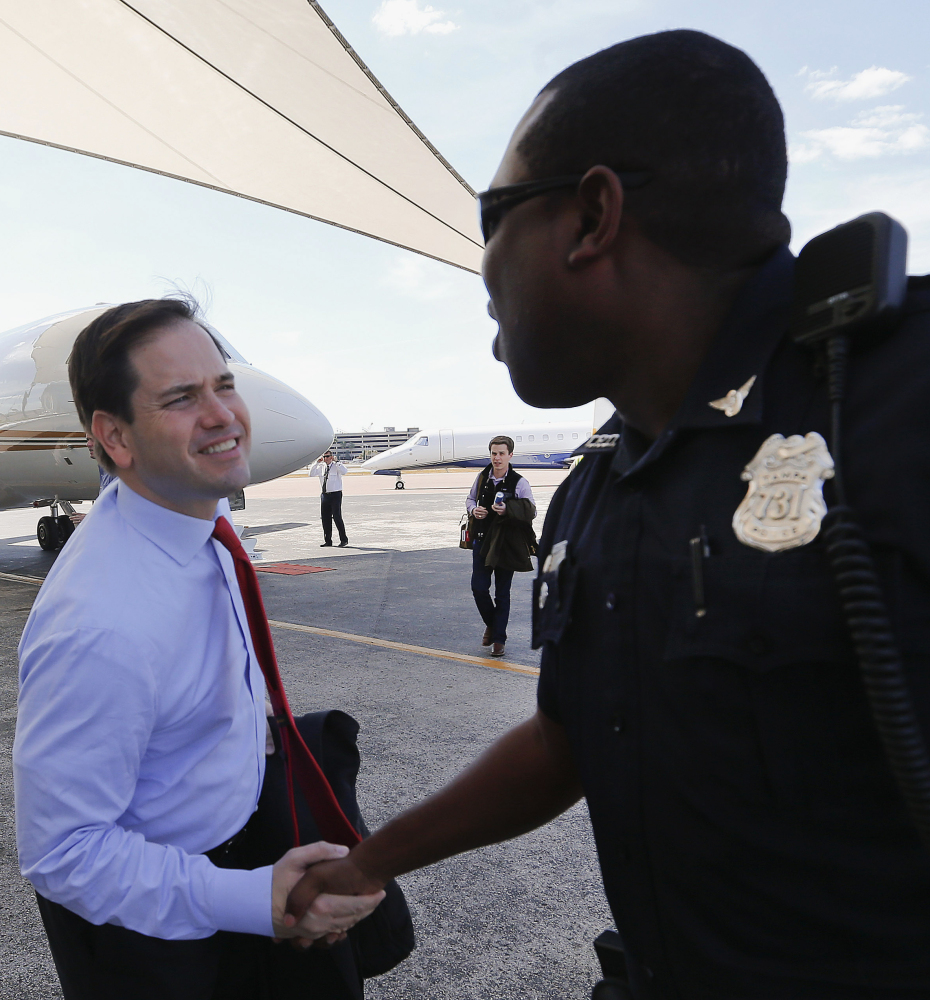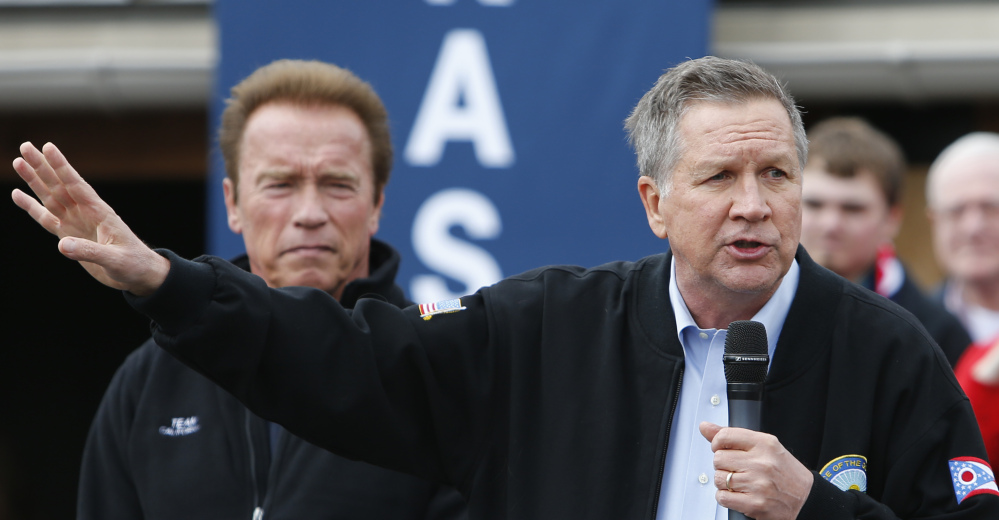Many Republican leaders and donors work to derail their front-runner, but the alternative is still unclear.
PARK CITY, Utah — The presentation is an 11th-hour rebuttal to the fatalism permeating the Republican establishment: Slide by slide, state by state, it calculates how Donald Trump could be denied the nomination.
Marco Rubio wins Florida. John Kasich wins Ohio. Ted Cruz notches victories in the Midwest and Mountain West. And the results in California and other states are jumbled enough to leave Trump three dozen delegates short of the 1,237 required – forcing a contested convention in Cleveland in July.
The slide show, shared with The Washington Post by two operatives advising one of a handful of anti-Trump super PACs, encapsulates the newly emboldened view of many GOP leaders and donors. They see a clearer path to stopping Trump following his two losses and two narrower-than-expected wins on Saturday.
In private conversations in recent days at a Republican Governors Association retreat here in Park City and at a gathering of conservative policy minds and financiers in Sea Island, Ga., there was an emerging consensus that Trump is vulnerable and that a continued blitz of attacks could puncture the billionaire mogul’s support and leave him limping onto the convention floor.
But the slow-bleed strategy is risky and hinges on Trump losing Florida, Illinois and Ohio on March 15; wins in all three would set him on track to amass the majority of delegates. Even as some party figures see glimmers of hope that Trump could be overtaken, others believe any stop-Trump efforts could prove futile.
This moment of confusion for the Republican Party is made more uncertain by the absence of a clear alternative to Trump. Cruz, Rubio and Kasich each are collecting delegates and vowing to fight through the spring. Among GOP elites, the only agreed-upon mission is to minimize Trump’s share of the delegates to enable an opponent to mount a credible convention challenge.
“It’s one thing if (Trump) goes to the convention and he’s got 48 percent, 49 percent of the delegates,” Tennessee Gov. Bill Haslam, a Rubio supporter, said in an interview here. “Then it’s a hard thing to see if there’s a convention floor battle. But if he goes to the convention and he’s got 35 or 40 percent, that’s a whole different thing.”
Other governors voiced exasperation not only at the prospect of a Trump nomination, but at the political culture that gave rise to his candidacy.
“We’ve got this Enquirer magazine mentality,” Utah Gov. Gary Herbert said in an interview. “We are subject to this reality TV voyeurism that is taking place. Fast-food headlines, no substance, all flash. The Twitter atmosphere out there, snarky comments on email, Snapchat. Everything is superficial.… We’ve got to wake up, America.”
Similar conversations were underway in Sea Island, where the American Enterprise Institute think tank held a policy forum.
“Despite the fact that the story right now is panic in the streets, throw the baby out the window and hope the firefighter catchers her … hope springs eternal,” said Arthur C. Brooks, the AEI president. “Nothing is inevitable.”
Trump could get a bounce on Tuesday with the Michigan and Mississippi primaries, which he is expected to win, though there are signs of tightening. But next Tuesday is seen as the more decisive moment, with winner-take-all Florida as ground zero – and where polls show Trump’s lead slipping.
The “Stop Trump” movement’s leading super PAC, Our Principles PAC, is adopting what its operatives call a “surround sound” strategy in Florida: More than $3 million in television advertisements, plus direct mail pieces, digital ads, phone banking and emails – all designed to sow doubts about Trump’s character, convictions and fitness for office.
“There is now a silver bullet,” said Brian Baker, a strategist involved with planning the super PAC’s activities. “It’s the cumulative effect of all of these messages.”
Baker also advises the political work of the billionaire Ricketts family, whose matriarch, Marlene, gave $3 million in seed money to Our Principles PAC.
Our Principles PAC is eyeing an aggressive push into Ohio, where Kasich is governor, and has prepared a possible television ad casting Trump as an outsourcer because his branded clothing is made in China and Bangladesh, the group’s advisers said.
The super PAC is attracting new donors, including Randy Kendrick, wife of the Arizona Diamondbacks owner, who said she was moved to act by Trump’s provocative rhetoric. “Dictators arose because good people did not stand up and say, ‘It’s wrong to scapegoat minorities,’ ” Kendrick said.
Some party establishment figures are assisting the super PAC, including former New Hampshire governor John Sununu, who confirmed that he has been calling friends urging them to make donations.
A separate group, American Future Fund, also is trying to take Trump down on the Florida airwaves with $2.75 million in a series of ads there. Some spots feature people who claim they were duped by Trump University while others star veterans speaking out against him or characterize some of Trump’s business associates as shady.
A third group, Club for Growth, is advertising against Trump in Florida and Illinois and is assessing a possible barrage in Ohio as well.
Send questions/comments to the editors.






Success. Please wait for the page to reload. If the page does not reload within 5 seconds, please refresh the page.
Enter your email and password to access comments.
Hi, to comment on stories you must . This profile is in addition to your subscription and website login.
Already have a commenting profile? .
Invalid username/password.
Please check your email to confirm and complete your registration.
Only subscribers are eligible to post comments. Please subscribe or login first for digital access. Here’s why.
Use the form below to reset your password. When you've submitted your account email, we will send an email with a reset code.